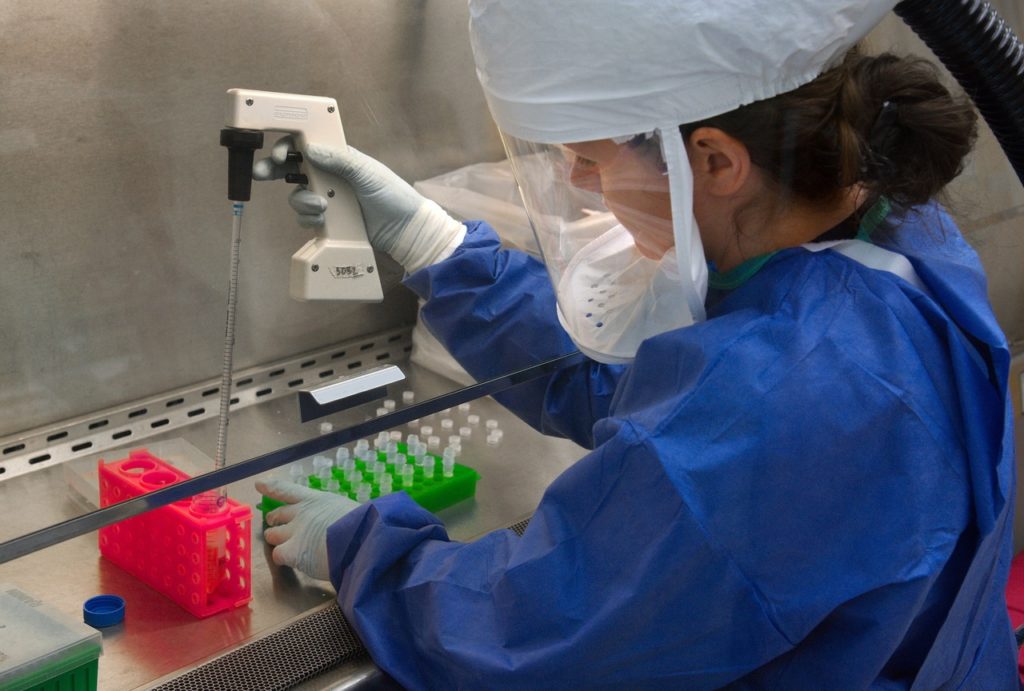Scientists at the university of Ghent and the Flemish Institute for Biotechnology are ready to take the next step in the development of a promising potential treatment for the coronavirus (Covid-19).
The team at the UGent Centre for Medical Biotechnology and the VIB are working together with international researchers on a technique which uses an antibody which disables a protein on the surface of the virus, making it impossible to bind onto human cells.
In cooperation with other teams at the university of Austin in Texas and the German Primate Center in Göttingen, the team has managed to neutralise a laboratory variant of the coronavirus using the technique.
The discovery is not a vaccine. A typical vaccine takes a part of the infectious agent and uses it to provoke the body to produce the immune defence required to combat it.
The treatment the teams are examining provokes no immune response, which has the advantage that it is fast-acting than a typical vaccine. It would for example allow medical staff to get back to work immediately while being protected against the virus.
In addition, older patients are often less responsive to vaccines, and the coronavirus is particularly dangerous for older people.
The research is now at the stage of having found a way to neutralise a lab variant of Covid-19. The next step is to begin work on the live variant that is involved in the current outbreak.
“It is important to point out that we need to have confirmation of our results using the virus that is causing the infection itself,” said Professor Xavier Saelens, a virologist at Ghent University, who is leading the Belgian team.
“Shortly we will begin in vitro testing with the real coronavirus, in a specially protected laboratory at the Rega Institute in Leuven.”
The institute was recently selected by the Bill & Melinda Gates Foundation to carry out research on 15,000 therapeutic molecules in the hope of finding one that can be used to combat Covid-19.
All those involved, however, stress that the research is still some way away from providing a usable therapy. Much testing still has to be done.
“In times of crisis it is important to keep a cool head,” said Flemish minister for science and innovation, Hilde Crevits (CD&V).
“Thanks to the years of biomedical research into the SARS virus, the scientists could find likenesses with the current coronavirus relatively quickly. That allowed them to realise this first important breakthrough. Of course further research and development is still needed. We are not quite there yet.”
Alan Hope
The Brussels Times

